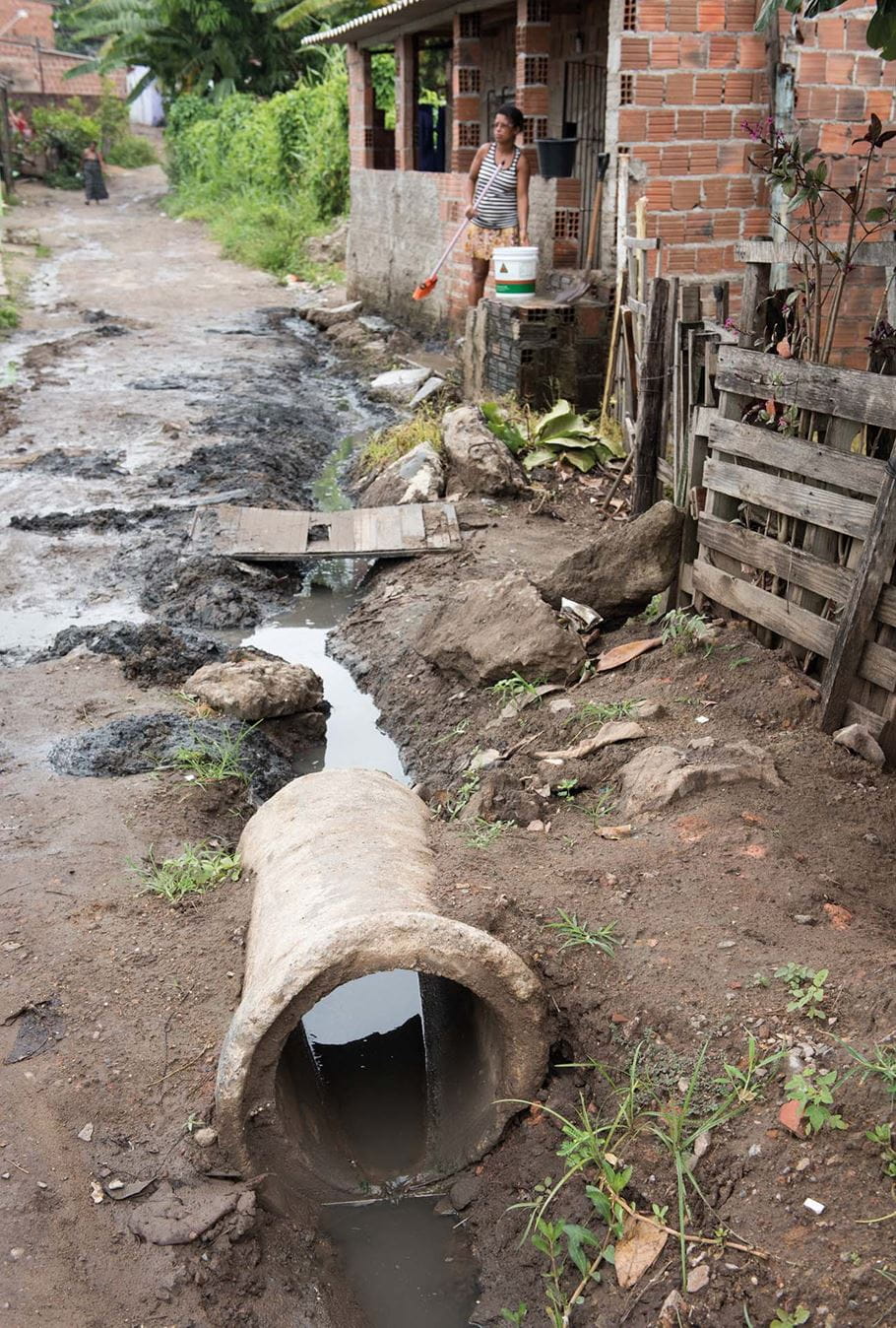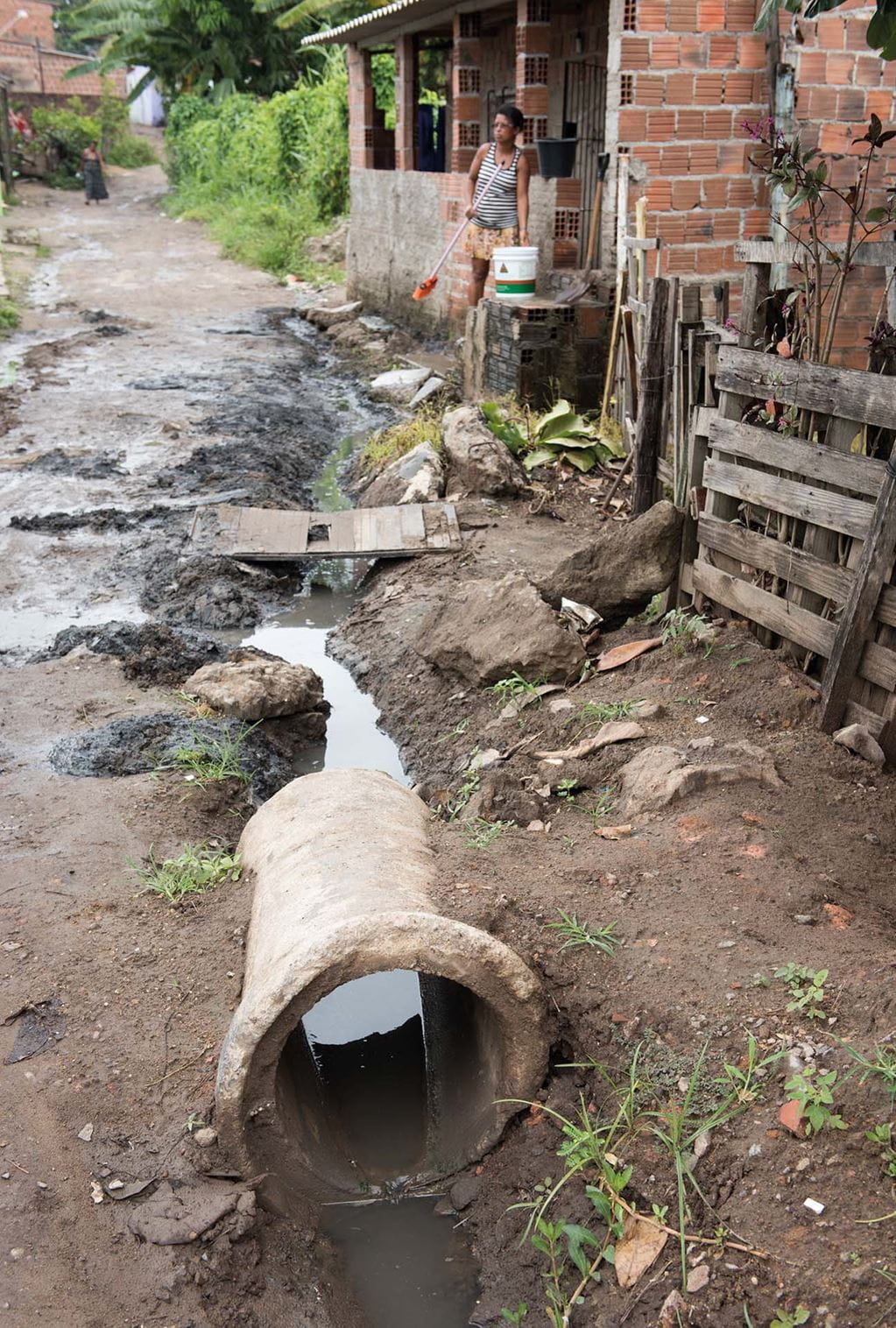The word ‘slum’ is often used to describe informal settlements within cities that have poor housing and miserable living conditions. Slums are often overcrowded, with many people crammed into very small living spaces.
Articles
Transforming slums
What is slum upgrading, and how can it be achieved?
2018 Available in English, French, Portuguese and Spanish



Slums like this favela in Brazil often lack basic services such as sanitation and drainage. Photo: Eleanor Bentall/Tearfund
These settlements lack basic services such as water, sanitation, drainage, waste collection, street lighting, pavements and roads for emergency access. Most slum dwellers do not have easy access to schools, hospitals or public places for the community to gather. Slums are often areas where crime and unemployment levels are rising.
Housing in slums is built on land that the occupants do not have a legal claim to. Often, slum dwellers face many obstacles to owning or obtaining the rights to land. Control of the land is often linked to corruption and the personal influence of those in positions of power.
Sometimes it is necessary to tear down a slum. In some cases, slums are built on land that is unsafe – for example, in areas where landslides are common. In such cases, relocation may be the best option. However, most slum evictions occur when local authorities want to remove slums located on valuable land so that developers or others can use it.
The process of gaining rights for slum dwellers depends on whether they are able to work together with the authorities. Community leaders or advocates need to start a conversation with the government so that slum dwellers and government officials can meet and take action together to upgrade the slum.
What is slum upgrading?
Generally, slums are built on land that is well located and provides easy access to the city and its opportunities. Poor people in urban areas need to be near the city to access jobs.
Slum upgrading is a process of gradually improving and formalising slums, until eventually they become recognised as part of the city itself. This happens when governments provide land, services and citizenship to slum dwellers. Activities usually include the provision of basic services such as housing, streets, drainage, clean water, sanitation and sewage disposal. Often, access to education and health care are also part of upgrading. In addition, one of the key elements of slum upgrading is legalising properties and bringing secure land tenure to residents.
Slum upgrading is also about putting into place the economic, social and community activities that are needed to turn around downward trends in an area. These activities should be done cooperatively with all parties involved – residents, community groups and businesses, as well as local and national governments, if applicable.
There are many factors that are needed for a slum upgrading programme to be successful. The two most important ones are strong political will on behalf of government and strong commitment on the part of communities.
Adapted from materials by Cities Alliance, a global partnership for reducing urban poverty and promoting the role of cities in sustainable development.
Web: www.citiesalliance.org
Email: [email protected]
Learning points from Cambodia
World Vision International started a new project to support poor urban communities to gain official land rights in Phnom Penh, Cambodia. World Vision helped the communities learn about land rights and linked them into the government’s decision-making processes.
World Vision shared the following learning points from the project:
- A big investment of time and resources is needed to build relationships with the government around the sensitive issue of land.
- It is very important to engage with other organisations already working on land tenure issues and establish a collective voice.
- Mapping formal and informal housing arrangements and key services is vital.
- It is useful to explore ‘soft advocacy’ approaches, including developing the communities’ ability to express the issues in a clear and non-confrontational manner.
View or download this resource
Get this resource
Get this resource
Similarly Tagged Content
Share this resource
If you found this resource useful, please share it with others so they can benefit too.

Subscribe to Footsteps magazine
A free digital and print magazine for community development workers. Covering a diverse range of topics, it is published three times a year.
Sign up now - Subscribe to Footsteps magazine




